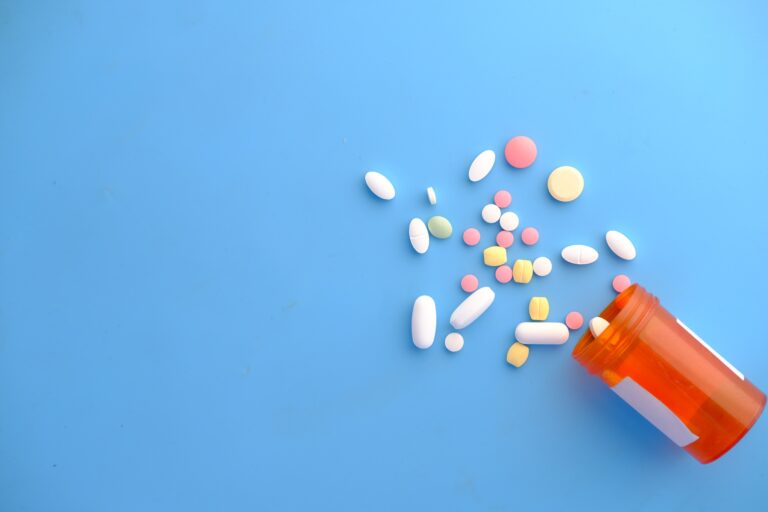The role of physical activity in opiate recovery is increasingly recognized as a critical component of a thorough treatment strategy. Regular exercise not only facilitates the release of endorphins, which can mitigate withdrawal symptoms and improve mood, but it also instills a sense of discipline and achievement that is crucial for rebuilding self-esteem. Additionally, participation in physical activities can foster social connections, creating a supportive network that is fundamental for sustained recovery. Understanding the various types of exercise that can be incorporated into recovery programs reveals further complexities and opportunities for healing.
Benefits of Physical Activity
Engaging in physical activity offers a multitude of benefits for individuals in recovery from opiate addiction. Regular exercise is an essential component of a thorough opiate treatment program, as it aids in the healing process both physically and mentally. Participating in exercise releases endorphins, which can improve mood and reduce feelings of anxiety, providing crucial opioid help. This natural boost can be particularly beneficial for individuals experiencing withdrawal symptoms or cravings during their recovery journey.
Furthermore, engaging in physical activity fosters a sense of accomplishment and discipline, which can be instrumental in rebuilding self-esteem. In an opiate treatment center, structured physical activity can also facilitate social interactions, helping individuals to forge connections with peers who share similar experiences. This support network is essential for long-term recovery, as it provides both motivation and encouragement. Ultimately, incorporating physical activity into an opiate addiction help plan can greatly improve outcomes, making the road to recovery more achievable and fulfilling.
Types of Exercise for Recovery
Numerous types of exercise can be beneficial for individuals in recovery from opiate addiction, each offering unique advantages that support the healing process. Aerobic exercises, such as running, cycling, and swimming, help improve cardiovascular health and increase endorphin levels, which can enhance mood and reduce cravings. These activities promote overall physical well-being and create a sense of accomplishment.
Strength training is another effective option, as it not only builds muscle but also boosts self-esteem and resilience. Engaging in resistance exercises can provide a structured routine, fostering discipline and focus, which are essential in recovery. Yoga and Pilates offer both physical and mental benefits, promoting mindfulness and stress reduction. These practices enhance flexibility, balance, and core strength while also encouraging relaxation techniques that can help manage anxiety and emotional triggers. Lastly, group sports or recreational activities can provide social interaction and a sense of community, essential components for those in recovery.
Building a Supportive Community
A strong support network is essential for individuals traversing the challenges of opiate recovery. This community can provide encouragement, accountability, and a sense of belonging, all of which are crucial for sustained recovery. Engaging with others who share similar experiences fosters an environment where individuals feel understood and supported, reducing feelings of isolation that can accompany recovery.
Building a supportive community can take various forms, including participation in support groups, therapy sessions, or community-based recovery programs. These settings encourage open dialogue and shared experiences, which can enhance motivation and resilience. Additionally, involving family and friends in the recovery journey can help create a more robust support system, as their understanding and encouragement can greatly impact the recovery process. Physical activity can also be a catalyst for community building. Joining exercise classes or recreational sports teams not only promotes physical health but also provides opportunities to connect with others. These social interactions can be invaluable, offering both camaraderie and distraction from cravings.

Final Thoughts
In summary, physical activity plays an essential role in opiate recovery by enhancing overall well-being, alleviating withdrawal symptoms, and fostering social connections. Regular exercise not only promotes the release of endorphins, which improve mood and reduce anxiety, but also instills a sense of accomplishment and discipline vital for rebuilding self-esteem. By integrating physical activity into recovery programs, individuals can establish a solid foundation for a healthier, drug-free lifestyle, ultimately supporting long-term recovery success. At Altitude Recovery, we’re committed to lifting you from the depths of substance use challenges to the heights of recovery and resilience. Our expert team provides personalized, evidence-based treatment services designed to support your distinct path towards healing. Reach out to us for the understanding and compassionate care you deserve on your journey to wellness.
Frequently Asked Questions
How Does Exercise Affect Cravings for Opiates?
Exercise has been shown to positively influence cravings for opiates by promoting the release of endorphins, which can enhance mood and reduce stress. Regular physical activity can also improve overall mental health, thereby diminishing the psychological triggers associated with substance cravings. Additionally, engaging in structured exercise routines fosters a sense of accomplishment and discipline, further aiding in recovery efforts. Incorporating physical activity into a thorough treatment plan can be beneficial for those seeking to overcome addiction.
Can I Exercise if I Have Physical Limitations?
Yes, individuals with physical limitations can still engage in exercise. It is important to consult with a healthcare professional to develop a tailored exercise plan that accommodates these limitations. Options may include low-impact activities such as stretching, seated exercises, or even aquatic therapy, which can provide a safe and effective means of physical activity. Engaging in suitable exercises can enhance overall well-being, promote mental health, and support the recovery process.
What if I Don’t Enjoy Traditional Exercise?
If traditional exercise does not appeal to you, consider alternative forms of physical activity that align with your interests. Activities such as dancing, hiking, gardening, or engaging in recreational sports can provide enjoyable ways to stay active. The key is to find movement that you genuinely enjoy, as this increases the likelihood of maintaining a consistent routine.
How Can I Stay Motivated to Exercise Regularly?
Staying motivated to exercise regularly can be challenging, but establishing a routine is key. Begin by setting achievable goals and tracking your progress, which can foster a sense of accomplishment. Incorporating enjoyable activities, such as walking, dancing, or joining group classes, can enhance your experience. Additionally, finding a workout buddy for accountability and support can make exercising more enjoyable.
Are There Risks of Injury During Exercise in Recovery?
Yes, there are risks of injury during exercise, especially for individuals in recovery. Factors such as deconditioning, lack of experience, and potential underlying health issues can increase vulnerability. It is essential to approach exercise with caution, starting slowly and gradually increasing intensity. Consulting a healthcare professional or a certified trainer can provide guidance tailored to individual needs, ensuring a safe and effective exercise regimen while minimizing the risk of injury during the recovery process.



